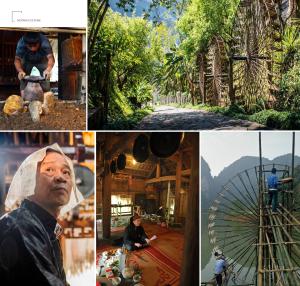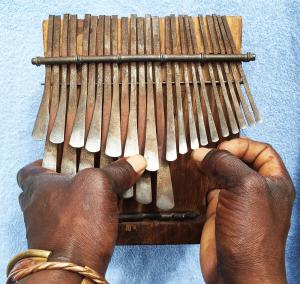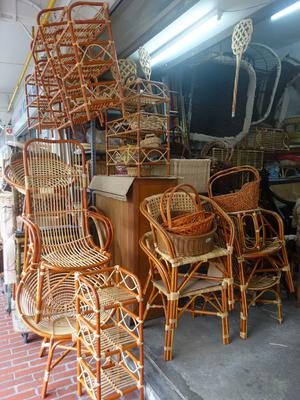- Marimba de chonta music and traditional chants (Bunde, Bambuco Viejo, Alabados, Juga, Rumba, Agua, among others)
- Rituals and dance forms linked to music
- Oral traditions (décima, storytelling)
- Culinary knowledge (viche, traditional recepies)
- Instrument-making and crafts (marimba de chonta, guasás, cununos, bombos)
Marimbea’s approach centers cultural identity as a vehicle for dignity, peacebuilding, and economic inclusion. Its work connects intergenerational wisdom with innovative practices, supporting communities to safeguard their heritage while creating opportunities for sustainable development.
Over the past decade, Marimbea has led more than 120 immersive cultural experiences in Colombia and eight other countries, reaching over 1,000 participants and directly benefiting over 400 people in rural and urban Afro-Colombian communities. These experiences include community-led cultural tourism circuits, educational workshops, interactive concerts, artistic residencies, virtual festivals, performances, and virtual courses.
Marimbea’s programs are built upon key values such as ancestral wisdom, social equity, and local empowerment. Its hybrid model blends informal education, artistic excellence, and environmental stewardship, while generating income through cultural services and partnerships.
Today, Marimbea collaborates with over 20 regional cultural organizations and 66 local leaders. It has been recognized nationally and internationally for its contributions to folklore preservation, sustainable peacebuilding, and community-based tourism. By integrating tradition with innovation, Marimbea not only preserves ICH—it reactivates its relevance and power as a foundation for collective resilience, identity, and hope.
04-29-2025
| Institutional and human capacities | Marimbea is a legally established cultural and social enterprise with over nine years of experience safeguarding Afro-Pacific intangible cultural heritage in Colombia. The organization is led by a multidisciplinary team of cultural managers, educators, musicians, researchers, and community leaders — including both Afro-Colombian and mestizo professionals — with deep roots in the territories and practices they support. Its human capital includes: *Traditional knowledge holders (marimberos, cantoras, cooks, oral historians) *Pedagogical designers and facilitators *Coordinators of cultural exchanges and community residencies *Experts in audiovisual documentation, communication, and heritage-based tourism Institutionally, Marimbea works through a flexible and participatory model that prioritizes horizontal collaboration with communities. It maintains long-standing partnerships with 66+ cultural leaders, 20+ regional organizations, and grassroots semilleros (youth cultural groups) throughout the Pacific region. In addition, Marimbea has successfully collaborated with national and international allies such as: * Colombia’s Ministry of Culture * In Place of War (UK) * USAID Marimbea also manages its own communication platforms, digital learning infrastructure, and media production processes — including a virtual course on Afro-Pacific cultural heritage — allowing for broad dissemination and sustainable knowledge transmission. Together, these institutional and human capacities position Marimbea as a leader in culturally grounded, community-based safeguarding of ICH. | |
| Transmission and education | Marimbea has developed a comprehensive and community-centered approach to the transmission of intangible cultural heritage (ICH), deeply rooted in the traditions of Colombia’s Afro-Pacific communities. Its educational model prioritizes intergenerational knowledge sharing, cultural integrity, and accessibility for both insiders and outsiders to the tradition. A central component of this work is the implementation of artistic residencies and community workshops, where traditional knowledge bearers including elders, women, and youth mentor participants in music, dance, culinary heritage and oral storytelling. More than 1500 individuals have been engaged in our experiential learning activities. Marimbea’s methodology is co-designed with traditional knowledge holders to respect and preserve ancestral ways of teaching, while also making them adaptable to people unfamiliar with the context or cultural practices. This ensures that even those with no previous experience in music, dance, or oral traditions can participate meaningfully. Our activities are crafted to be joyful, practical, and immersive, helping learners understand the holistic nature of Afro-Pacific cultural systems where knowledge, emotion, identity, and community are inseparably linked. To extend the reach of these educational activities beyond the Pacific Coast, Marimbea organizes cultural exchanges across Colombia and abroad. Traditional knowledge bearers both men and women from various generations travel to cities such as Bogotá, Medellín, and Cali to conduct workshops, share performances, and engage in dialogue with diverse audiences. In some cases, they also represent their heritage internationally, participating in cultural diplomacy and cross-cultural learning opportunities. These encounters help break stereotypes and foster respectful relationships with communities that have historically been excluded from the national narrative. Participants from other regions or countries are encouraged not only to learn technical skills like playing marimba, but also to appreciate the social, environmental, and historical significance of these practices. They are invited to approach Afro-Pacific heritage with curiosity, humility, and deep respect. In addition, Marimbea integrates ecological education into some of its trainings. Learners explore the environmental dimensions of ICH—such as sustainable wood harvesting for instruments or mangrove protection tied to local cuisine—strengthening the connection between cultural and ecological resilience. Virtual learning has also become a powerful tool in Marimbea’s educational strategy. Through digital content and online sessions, the organization connects rural knowledge keepers with urban and international audiences, maintaining continuity during crises like the COVID-19 pandemic. Marimbea’s model is a living, evolving system of education that safeguards cultural transmission while building bridges of understanding, solidarity, and pride. It not only preserves traditions, it brings them to life in new generations and contexts. | |
| Inventorying and research | Marimbea is currently developing a robust, community-led inventory of Afro-Pacific intangible cultural heritage (ICH), in collaboration with cultural leaders from multiple municipalities. The inventory includes musical genres (e.g., currulao, bunde, juga), traditional instruments (marimba,bombo, cununo, guasá), oral traditions (such as décima cimarrona), culinary knowledge, and other ancestral practices. We have already collected substantial data through our fieldwork, interviews, workshops and the creation of our virtual course, which serves as a living repository and educational platform on Afro-Pacific ICH. However, we are currently seeking funding to systematize, classify, and publish this knowledge in a format that ensures accessibility, high-quality presentation, and alignment with international standards. | |
| Policies as well as legal and administrative measures | Colombia has made significant progress in the recognition and protection of intangible cultural heritage (ICH) through a comprehensive legal and policy framework. Key milestones include: * The creation of the National Heritage Council. * The formulation of the Plan Nacional de Salvaguardia del Patrimonio Cultural Inmaterial. * The approval of Law 70 of 1993, which guarantees the collective cultural and territorial rights of Afro-Colombian communities. * The official inclusion of “Músicas de marimba y cantos tradicionales del Pacífico sur de Colombia” in the Representative List of Intangible Cultural Heritage of the Nation through Resolution 1645 of 2010, and their inscription in UNESCO’s Representative List of the Intangible Cultural Heritage of Humanity in the same year. These recognitions validate the cultural richness and ancestral significance of Afro-Pacific traditions. However, despite these frameworks, the implementation of policies remains uneven—especially in rural and marginalized areas where communities continue to face barriers in accessing funding, influencing decisions, and securing long-term protection for their practices. In this context, Marimbea acts as a facilitator and bridge, helping grassroots cultural collectives navigate and benefit from the legal tools available. This includes supporting applications to the National Cultural Incentives Program (Programa Nacional de Estímulos) and facilitating access to international cooperation schemes. Marimbea has also participated in intersectoral initiatives that link ICH with peacebuilding, environmental stewardship, education, and economic development. Our commitment is rooted in the principle of cultural sovereignty: ensuring that communities are not passive recipients of policy but active agents in its design and implementation. By working with organized cultural groups and knowledge holders, Marimbea helps them assert their cultural rights and shape the legal and institutional frameworks that affect their heritage. | |
| Role of intangible cultural heritage and its safeguarding in society | The intangible cultural heritage (ICH) of Colombia’s South Pacific — including traditional music, funeral chants, oral storytelling, and culinary practices — plays a vital role in maintaining the social fabric, collective identity, resilience, and historical memory of Afro-Colombian communities. These traditions are not just artistic expressions; they are mechanisms of community cohesion, intergenerational transmission of values, healing after conflict, and resistance against marginalization. Music and rituals, for instance, are fundamental spaces where spiritual beliefs, environmental knowledge, and social solidarity are practiced and reinforced. Safeguarding these practices ensures that marginalized communities retain control over their cultural narratives and strengthens their capacity to negotiate social, political, and economic inclusion. It allows communities to assert their dignity and visibility in broader Colombian society and on the global stage. Through initiatives like Marimbea’s, the safeguarding of ICH also generates opportunities for education, sustainable tourism, cultural entrepreneurship, and peacebuilding. In a country historically affected by armed conflict and exclusion, protecting Afro-Pacific intangible heritage is a pathway toward reconciliation, empowerment, and shared national identity. Without proactive safeguarding, these invaluable traditions are at risk of disappearing under the pressures of migration, cultural homogenization, and systemic inequality — causing an irreparable loss not only for the communities themselves but for the cultural diversity of humanity as a whole. | |
| Awareness raising | Marimbea actively promotes the visibility, appreciation, and safeguarding of Afro-Pacific intangible cultural heritage (ICH) through a range of innovative strategies: * Cultural workshops and immersive retreats, designed not only for community members but also for urban audiences, students, and international visitors. * Concerts, exhibitions, and public showcases, such as the “Music and Reconciliation” session at WOMEX 2023, where Afro-Pacific traditions were highlighted on a global stage. * Digital outreach, including the development of a virtual course that brings the knowledge of Afro-Pacific elders and musicians to broader audiences nationally and internationally. * Artistic collaborations, where Afro-Pacific music and traditions are dialogued with other genres such as classical, jazz, and global music: - A national concert tour with renowned soprano Betty Garcés and traditional masters from Guapi alongside the Bogotá Youth Philharmonic Orchestra. - A vinyl record co-produced with Okra Discos (Japan), blending traditional Pacific sounds with international markets. - A fusion project with the jazz group Redil Cuarteto and elder singers (cantoras) from Yerbabuena, guardians of funeral songs from Tumaco. * Media engagement and storytelling, through audiovisual productions, interviews, and articles that humanize and celebrate the traditions and the communities who sustain them. * Tastings where traditional food practices are used as entry points to connect people emotionally and culturally to Afro-Pacific heritage. By creating spaces of respectful encounter and intercultural artistic innovation, Marimbea helps dismantle stereotypes, fosters mutual understanding, and builds a broader societal commitment to the safeguarding of Colombia’s cultural diversity. Awareness raising is central to ensuring that Afro-Colombian intangible heritage is not only preserved but celebrated and recognized worldwide. | |
| Engagement of communities, groups and individuals as well as other stakeholders | Marimbea’s safeguarding initiatives are co-created and implemented in direct partnership with Afro-Colombian communities from Colombia’s Pacific coast. The organization actively engages elder knowledge holders, traditional musicians, singers, cooks, artisans, and youth cultural leaders, ensuring they are not just participants but co-designers, educators, and decision-makers throughout all phases of the process. Community members: - Lead workshops and residencies - Participate in documentation and inventory-building - Represent their heritage in national and international exchanges Marimbea prioritizes collaboration with organized cultural collectives, such as semilleros, local associations, and cooperatives, to ensure sustainability and intergenerational continuity. More than 66 cultural leaders and 20 regional organizations form part of Marimbea’s active network, including a WhatsApp-based communication platform where they share funding opportunities, training, and mutual support. Beyond the communities themselves, Marimbea engages a diverse group of stakeholders, including: * The Ministry of Culture of Colombia, through cultural co-productions and grant programs. * International allies such as In Place of War (UK), Okra Discos (Japan), and musicians from Brazil, the United Kingdom, among other countries. * Universities and students, through immersive field experiences. * Cultural journalists and curators, including members of BBC London and Songlines Magazine. This ecosystem of collaboration ensures that the safeguarding of Afro-Pacific ICH is community-led, widely supported, and globally connected—anchored in local wisdom but open to intercultural dialogue and learning. | |
| International engagement | Marimbea actively builds international bridges to promote Afro-Pacific intangible cultural heritage (ICH) as a living and globally relevant legacy. The organization has established strong partnerships with international cultural networks, NGOs, and artists, including: - In Place of War (UK), with whom it co-produced a digital cultural festival during the pandemic and co-presented the “Music and Reconciliation” session at WOMEX 2024 (Manchester, UK), the world’s leading world music expo. - Okra Discos (Japan), with whom Marimbea co-produced 2 vinyl records featuring traditional Pacific musicians, expanding the reach of these sounds into global music circuits. - International artists and journalists from the UK and Brazil who have participated in Marimbea’s cultural retreats and field exchanges in Colombia. In 2023, Marimbea’s Executive Director received the Spirit of Folk Award from Folk Alliance International (USA), recognizing his work in cultural preservation and innovation through Marimbea. In addition, Marimbea is preparing for a South–South cultural exchange tour in Ghana (2025), which will connect Afro-Colombian and West African communities through music, pedagogy, and shared memory practices. Through these engagements, Marimbea brings local voices to global platforms, fostering mutual learning, cultural solidarity, and international visibility for Afro-Pacific heritage. | |
| References | ||

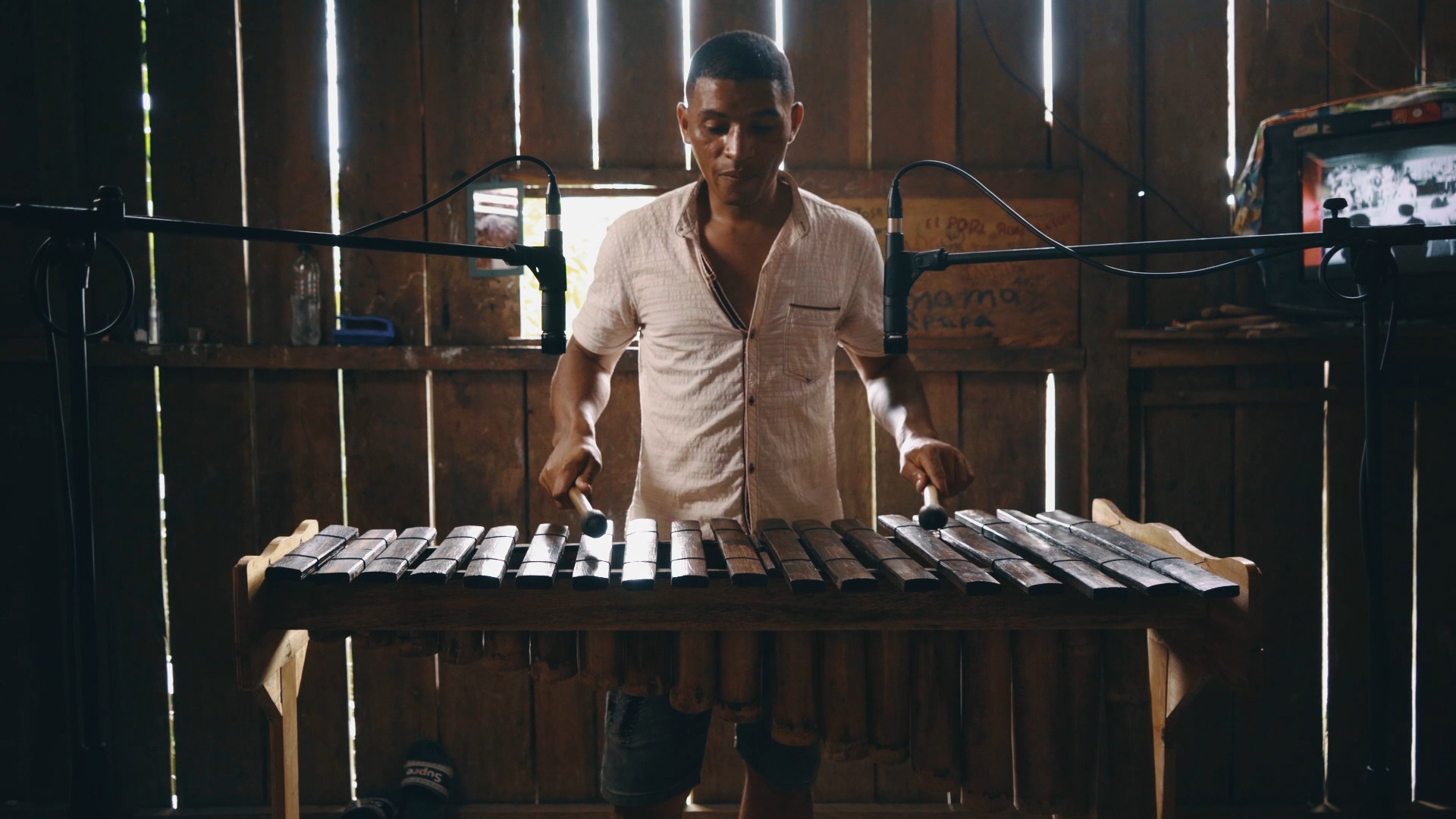
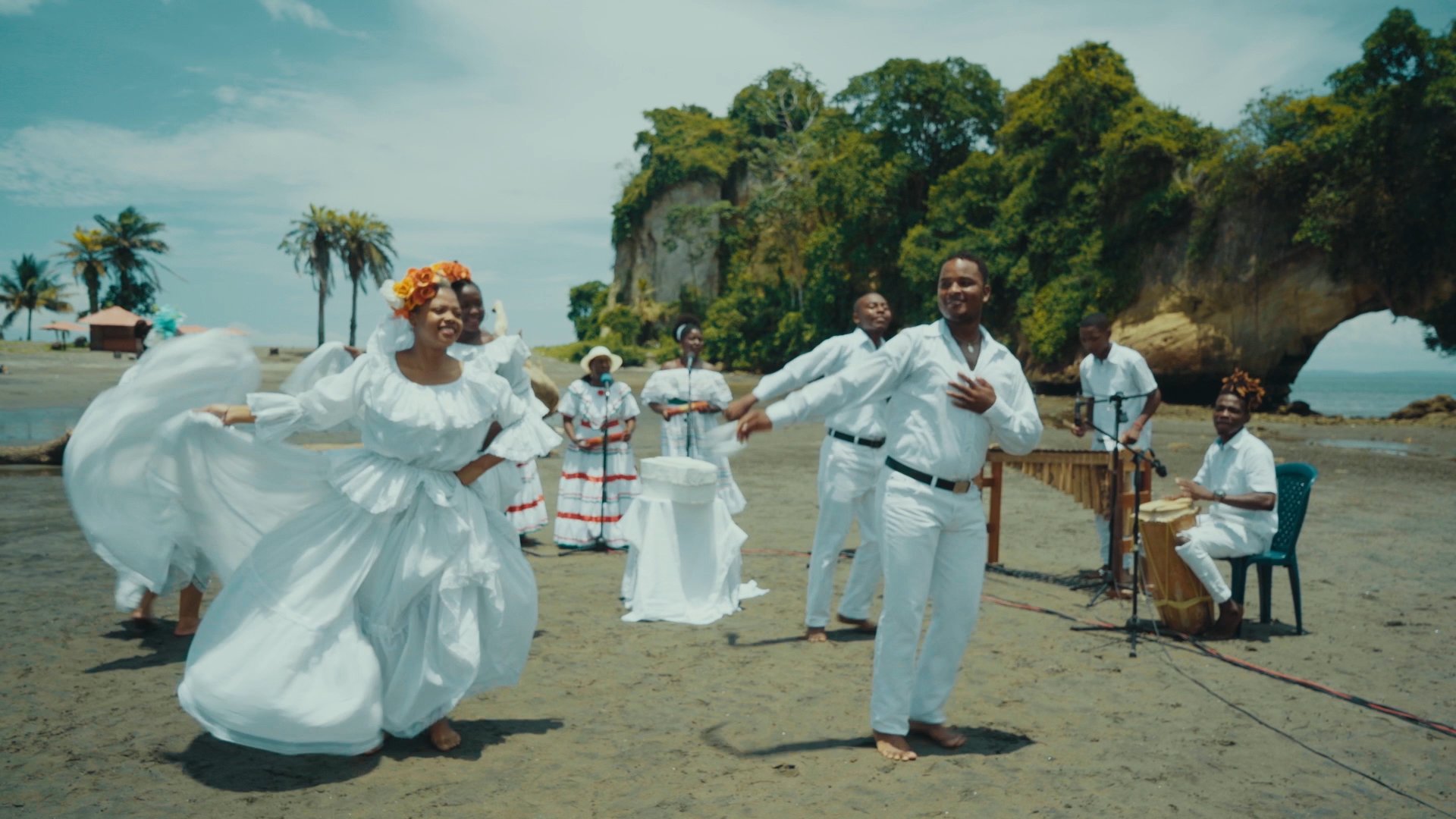
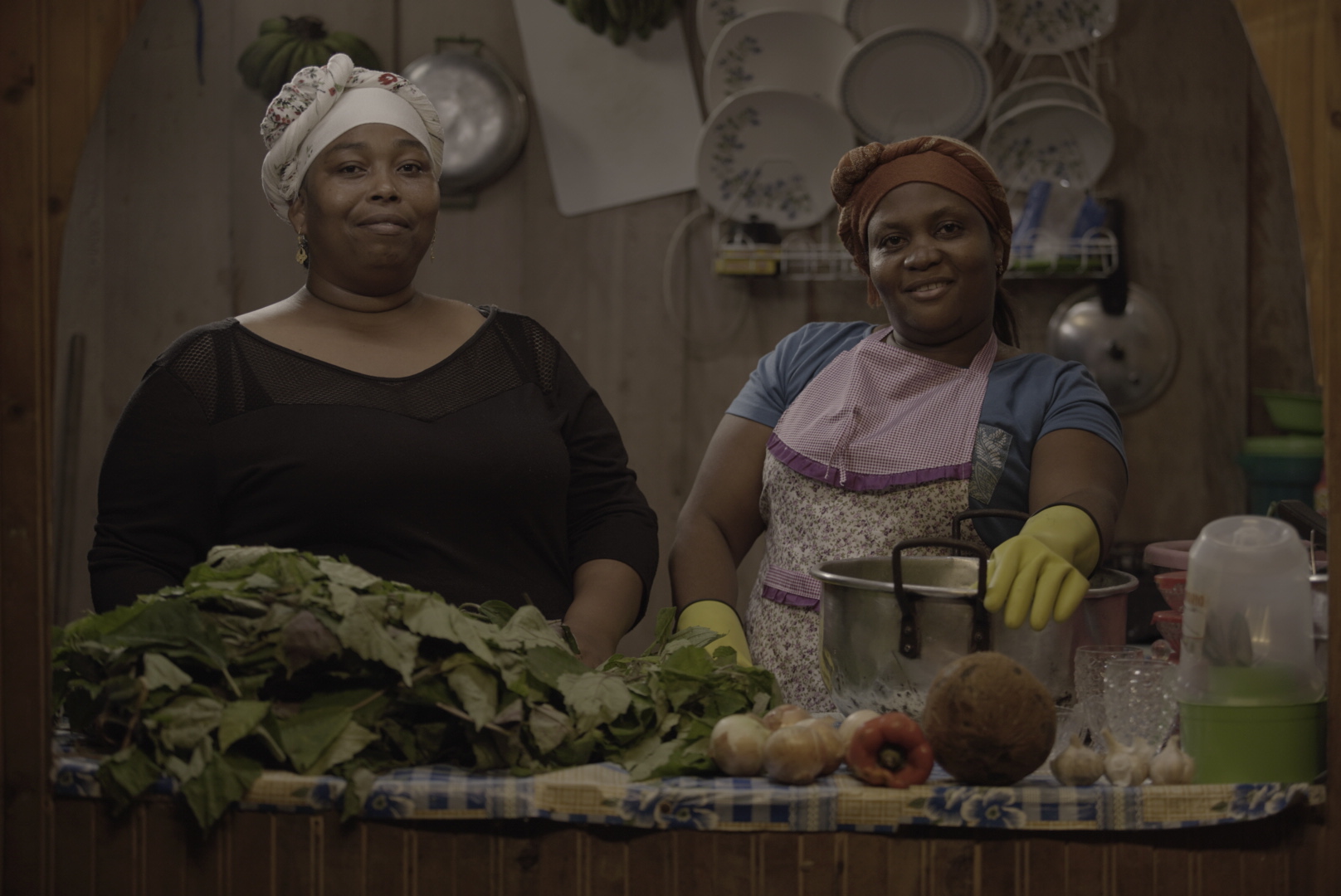
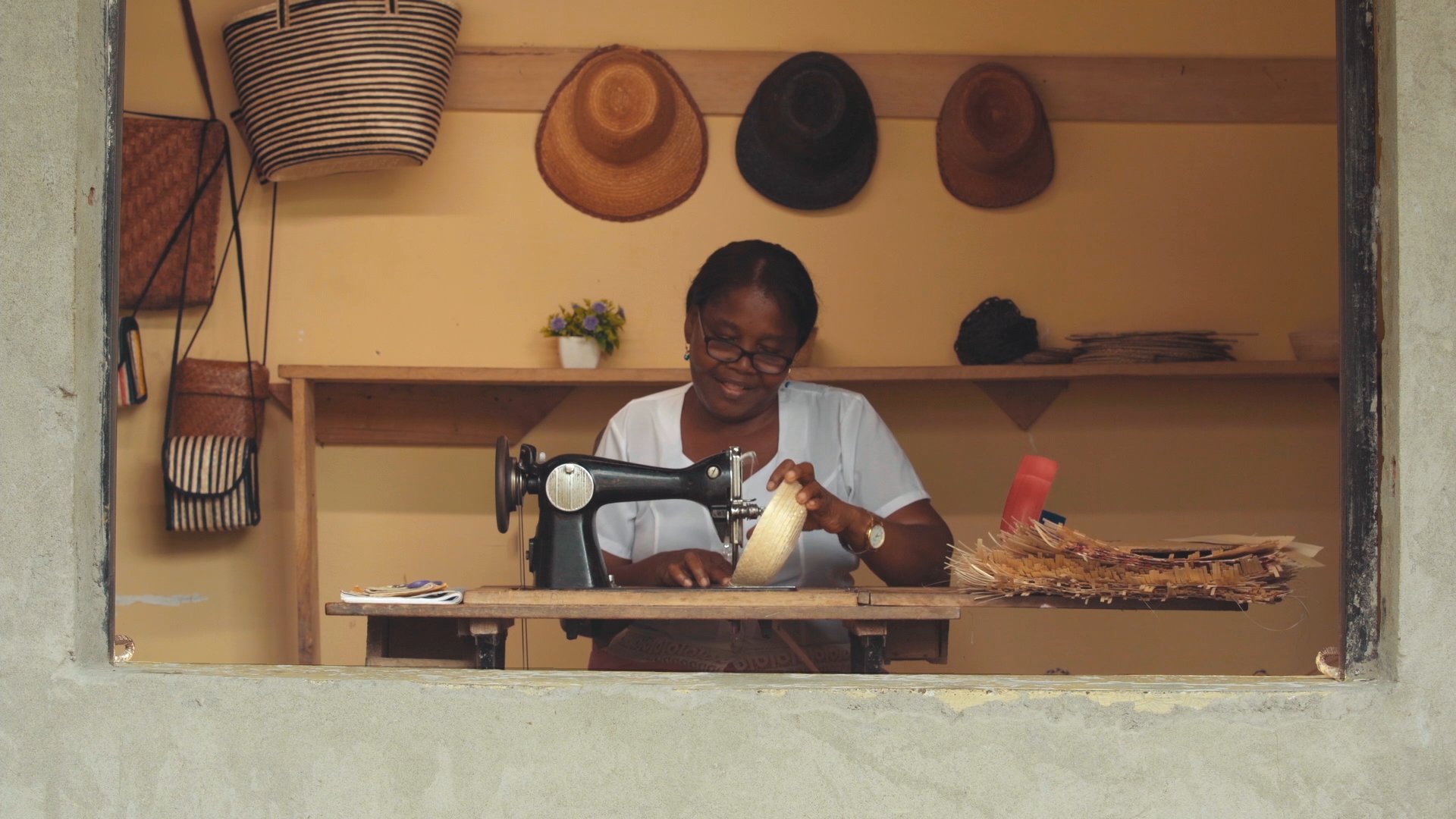
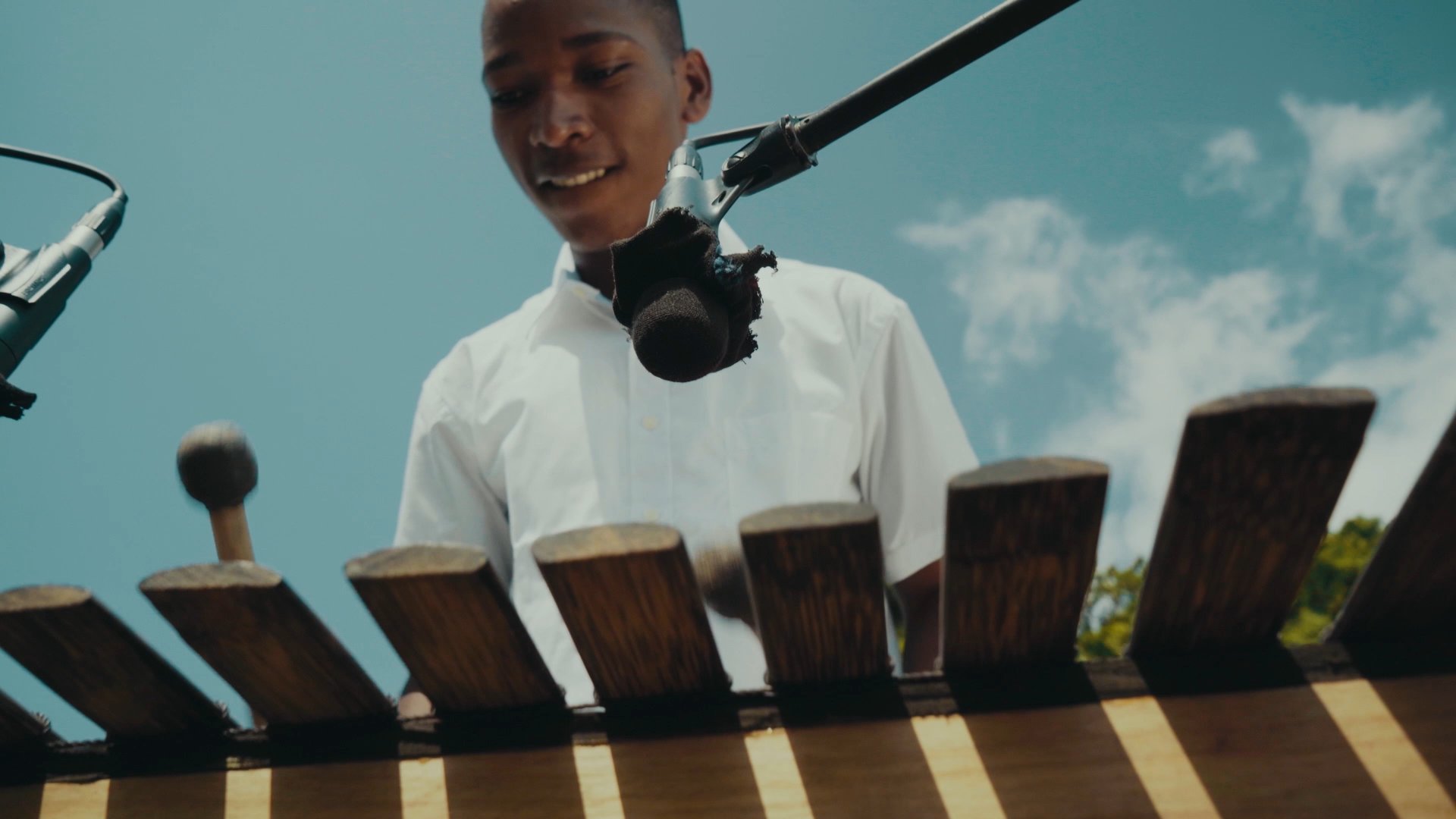

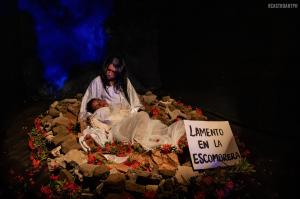
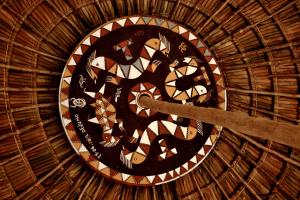

.jpeg)
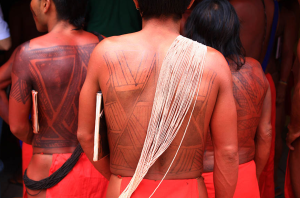
.jpg)
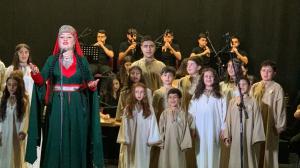
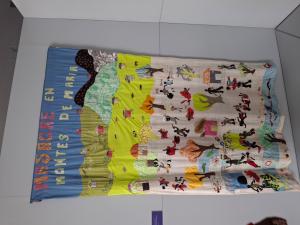

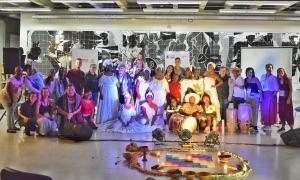
.png)
.jpg)















_(31711258567).jpg)

















